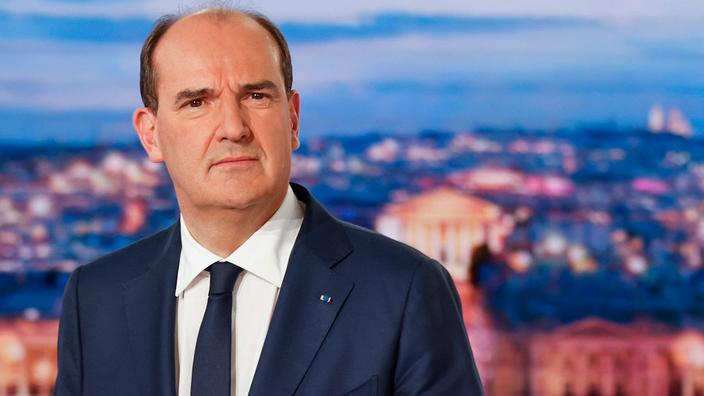The government is out of the woods.
Thursday evening, on the set of TF1, the Prime Minister came to announce the decision taken to help the French whose wallets are eaten away by the rise in prices affecting many sectors.
But, instead of announcing a measure relating specifically to fuels, yet at the center of this file, Jean Castex presented the outlines of an "
inflation allowance
", which should make it possible to relieve all the most fragile households and not just motorists.
Matignon then detailed, later in the evening, certain points of the device.
Le Figaro
returns to the details known so far.
Read also Presidential 2022: the battle for purchasing power agitates the campaign
Who can receive this compensation?
Jean Castex made it clear: "
the only condition is a means test
".
Clearly, all employees, retirees, craftsmen, self-employed, farmers, apprentices and job seekers earning less than 2,000 euros net can receive the premium.
Part-time precarious workers are also concerned, as are minimum social welfare recipients.
In total, "
two thirds of French students
" are eligible, according to Gabriel Attal, including "
scholarship students and fiscally independent from their parents
".
Students receiving allowances are also concerned, as are those working but receiving less than the ceiling of 2000 euros.
Please note: for a household, it is not the combined income of the parents that matters in determining eligibility, but that of each individual. If a couple receives 3000 euros for two but 1400 and 1600 euros separately, the two members will receive the bonus of 100 euros. To determine the eligibility of an employee, the month that will be looked at could be October or November, this detail is not yet clear: "
it is the salary in force at the time of the measure
" -on indicated. Another clarification, the compensation is not linked to the possession or not of a vehicle.
In total, 38 million French people meet this resource condition and are eligible, according to government calculations, including half of the employees - 2,000 euros being the "
median salary
", underlined Jean Castex - and 13 million retirees.
How much is the compensation?
The compensation amounts to 100 euros.
It is tax-exempt, free of charge, and will only be paid once: it is therefore not monthly.
This amount is equivalent, according to the entourage of the Prime Minister, to the additional cost generated by inflation for the household budget: it must cover, with 80 euros, the "
average additional cost of a wheeler of 14,000 kilometers per year who suffers the increase fuels,
”said Matignon.
The remaining 20 euros are equivalent to “
other inflationary effects
”, including those weighing on the food bill.
How will the compensation be paid?
Anxious to avoid at all costs creating a "
gas plant
", the government wanted to keep it simple: the payment will be "
automatic
", announced Jean Castex Thursday evening. The entity paying the sum will be different depending on the situation of the individual concerned: it will thus be employers for employees, Urssaf for the self-employed, Pôle emploi for job seekers, MSA for farmers and pension funds for retirees.
Note, employers will have no choice: they will have "
the obligation, by law, to pay the aid
", warned the entourage of the Prime Minister.
They will be compensated by a reduction in employer contributions.
The executive will introduce provisions in the amending budget for 2021, which must be presented on November 4 in the Council of Ministers, as well as in the Social Security budget.
Regulatory provisions are also expected.
When will the compensation be paid?
Again, it all depends on the individual's situation.
The aid will be paid "
as soon as possible
", we are assured: employees should receive the allowance on their pay at the end of December, as well as "
the majority
" of the people concerned.
Public officials will receive their payment in January.
Retirees, for their part, will have to wait for the "
February pensions
".
How much does this premium cost public finances?
The State is once again putting its hand in its pocket, and should pay some 3.8 billion euros to finance this compensation.
A substantial sum, but which remains much less heavy than the cost of a reduction in taxes (VAT, TICPE) on fuels: Bercy estimated that a reduction of 20 cents would have cost some 10 billion euros.
The tax cut would not have been more effective in countering inflation, the government spokesman ruled on Friday morning.
Likewise, specific fuel aid would have been "
a gas plant
", difficult to implement and little used, according to Gabriel Attal.
The government assures that this new expenditure will not endanger the budgetary balance planned so far: part of the cost will be offset by the “
additional VAT cost
” generated by the rise in prices, said Jean Castex.
The “
surplus tax revenues
” generated by the strong growth expected this year, as well as any government efforts will be used to pay the rest.
There is "
no exceeding the target
" of a deficit of 5% of GDP in 2022, said Matignon.












